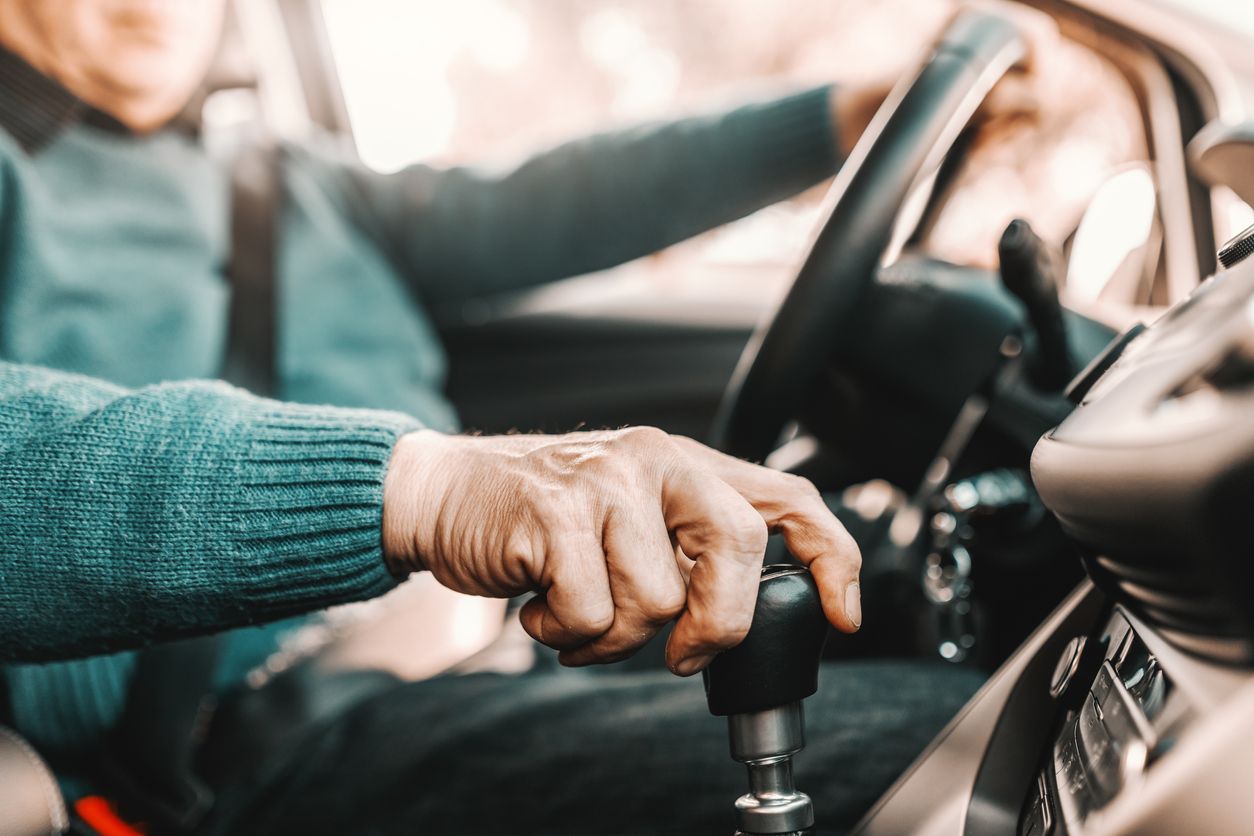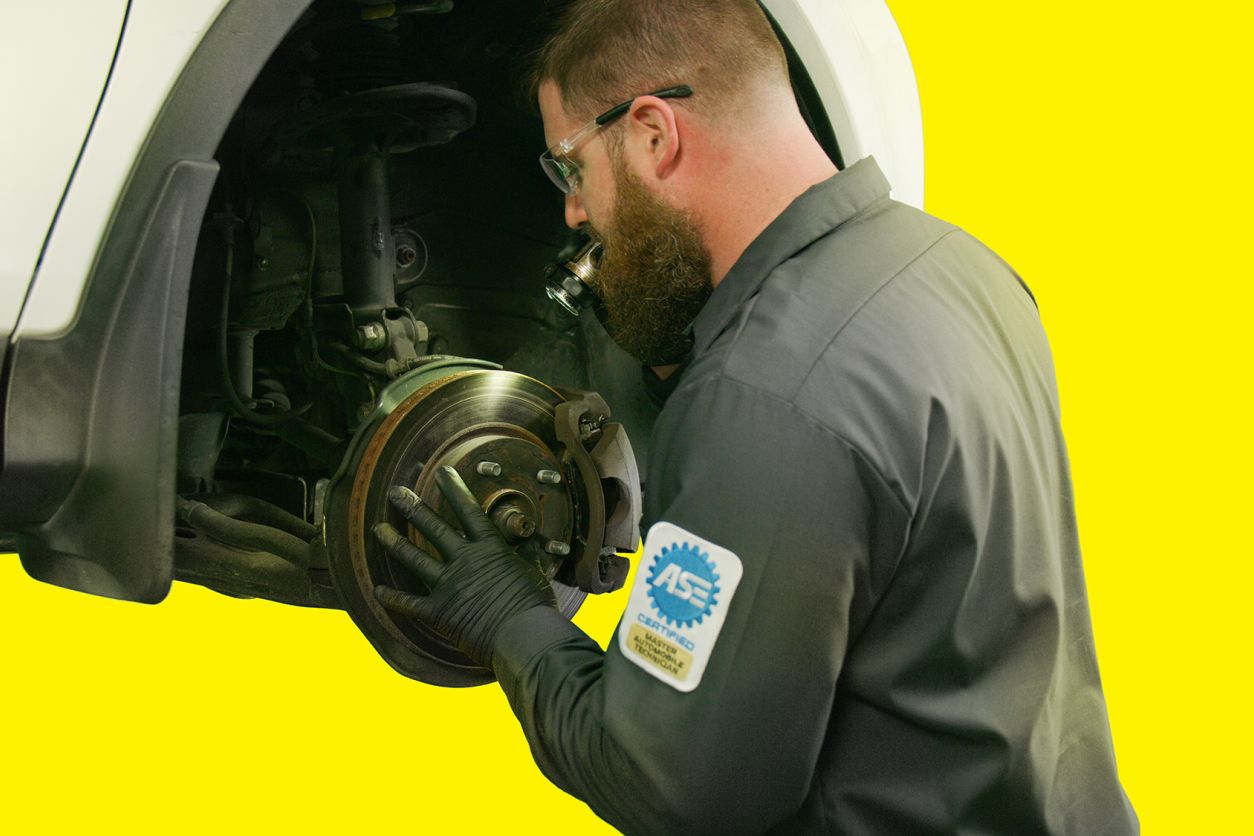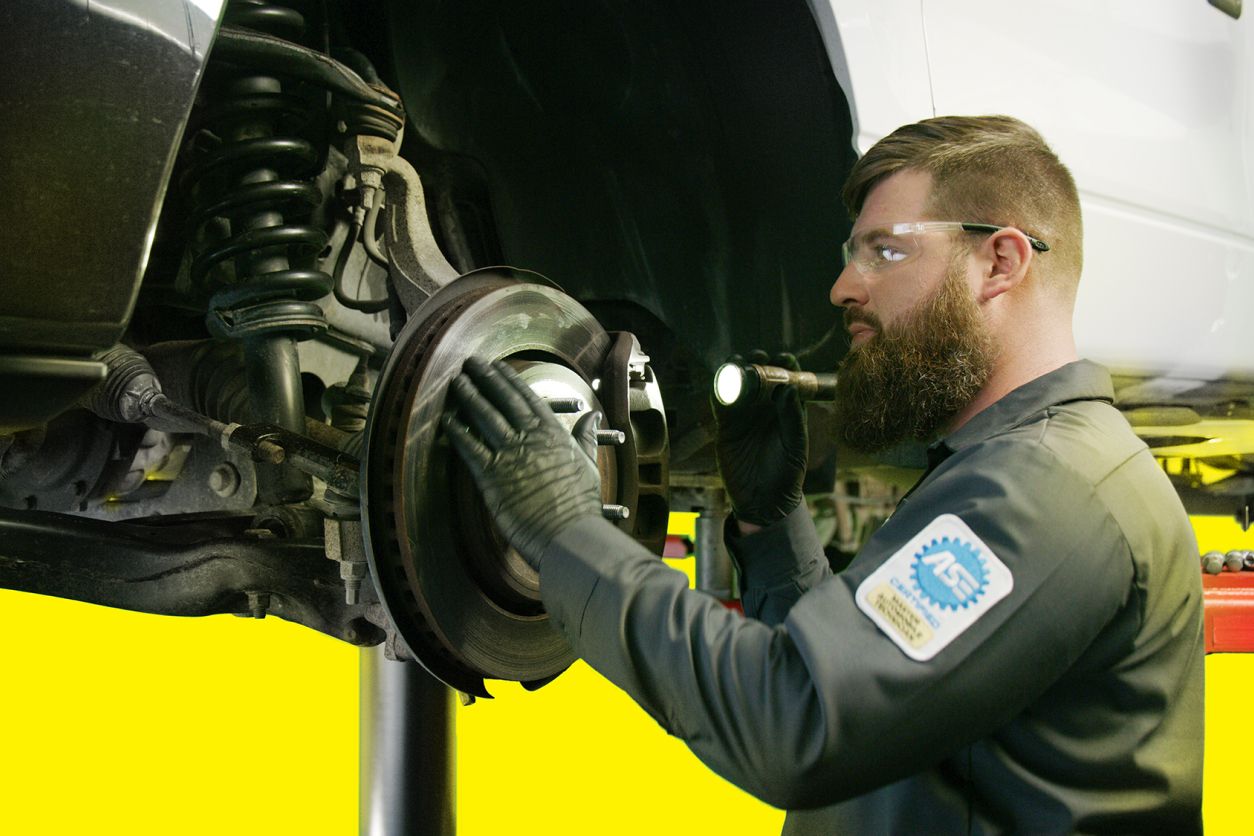You’re ready to hit the road, but your ride throws you a curveball — it won’t start, and to add to the frustration, the brake pedal refuses to budge. This unique situation can leave even the most experienced drivers scratching their heads.
Read on to learn when a stiff brake pedal is normal, when it isn’t, and why your car may not be starting!
Stiff Brake Pedal Before Engine Start: Probably Normal!
Let’s start with the good news. Most of the time, it’s normal for your car to have a stiff brake pedal when the engine isn’t running. Most modern cars have power brakes, which rely on a brake booster to multiply the pressure you apply to the brake pedal. Many brake boosters pull vacuum from the engine, while others are hydraulic or powered by electricity.
Brake Pedal Won’t Depress to Start Car: Likely Abnormal
To prevent curious children or beloved pets from accidentally starting engines, many vehicles require you to step on the brake to start them — especially push-to-start cars. So if your brake pedal suddenly won’t depress, it can be a major problem. One of these issues may be the cause if your brake won't go down and car won't start:
- Obstructed Brake Pedal: Sometimes floor mats can fold on themselves or bunch up behind the brake pedal, preventing it from depressing. While you check for bunched-up floor mats, also look for fast food cups, stray flip-flops, and anything else that could prevent brake pedal movement.
- Rusty Brake Calipers: If you haven’t driven your car in a long time or live in an extremely humid environment, rust may build up in your brake calipers. If severe enough, this could prevent caliper piston movement and may make depressing the brake pedal far enough to disengage the brake switch difficult. However, this is only relevant for push-to-start cars or vehicles that require the brake pedal to be depressed for starting.
- No Vacuum Pressure: In vehicles with vacuum-powered brake boosters, a lack of vacuum can lead to a stiff brake pedal— though there should still be enough pedal travel to allow a push-button vehicle to start. Have a professional check for cracked hoses running from your intake manifold to your brake booster if your pedal is stiff or hard to depress while the vehicle is running. If they notice any cracks, the hoses could be leaking vacuum, preventing adequate vacuum production.
- Bad Power Steering Pump or Belt: If your vehicle has a hydraulic brake booster — sometimes called a hydro-boost — it draws its power from the power steering pump (PSP). In systems like these, a failed power steering line, hose, or pump can prevent brake power multiplication, which may result in a stiff pedal. If you’ve noticed fluid pooling underneath your vehicle, a firm brake pedal, and difficulty steering, this is probably the culprit!
- Restricted Brake Lines or Hoses: To provide stopping power, the braking system uses a series of metal brake lines and rubber brake hoses to deliver brake fluid to each wheel. If one of the vehicle’s metal brake lines gets pinched or a rubber brake hose internally breaks down, a restriction in the braking system can occur. If there is any type of restriction in the brake system, your pedal will likely feel stiff.
Other Potential Reasons Your Car May Not Start
If you’ve checked for the issues above and your car still won’t start, your brakes may not be the culprit. Instead, your vehicle could be suffering from a faulty starter, ignition, or battery.
- Bad Starter: The starter’s job is to get your engine’s flexplate or flywheel spinning, allowing the engine to crank and the combustion cycle to begin. When your starter fails, you may notice a clicking, whirring, or grinding sound when you turn the key or press the push-to-start button.
- Failed Ignition Switch: Your vehicle’s ignition switch is responsible for directing (or limiting, in some cases) power to the proper components depending on which position it is in — off, accessory, start, or on. When your ignition switch fails, some or all of your accessories (windows, radio, etc.) may not work, and your engine may fail to start or refuse to crank.
- Dead Battery: If your car won’t start, your battery could be going bad (or already has!). After all, car batteries only last 3–5 years, generally. There are many signs of a failing battery, but slow engine cranking and dim headlights are two major ones. If you have a multimeter or voltmeter, test your battery. If it’s in good condition, it should output at least 12.2 volts or more with the vehicle off. If it isn’t, it might just need to be charged, but it may also be on its way out. If the latter is true, read these 5 No-Fail Steps for Choosing the Best Car Battery.
Brake Locked and Car Won't Start? Tires Plus Can Help
We understand how frustrating this situation can be. You have places to be, and nobody wants their car to become a giant, expensive paperweight!
Whether you're experiencing brake issues or the effects of a bad starter, the technicians at Tires Plus are here to help. We offer brake services, battery replacements, and much more. Stop by your nearest location, and we'll get you back on the road in no time. Schedule an appointment today!


